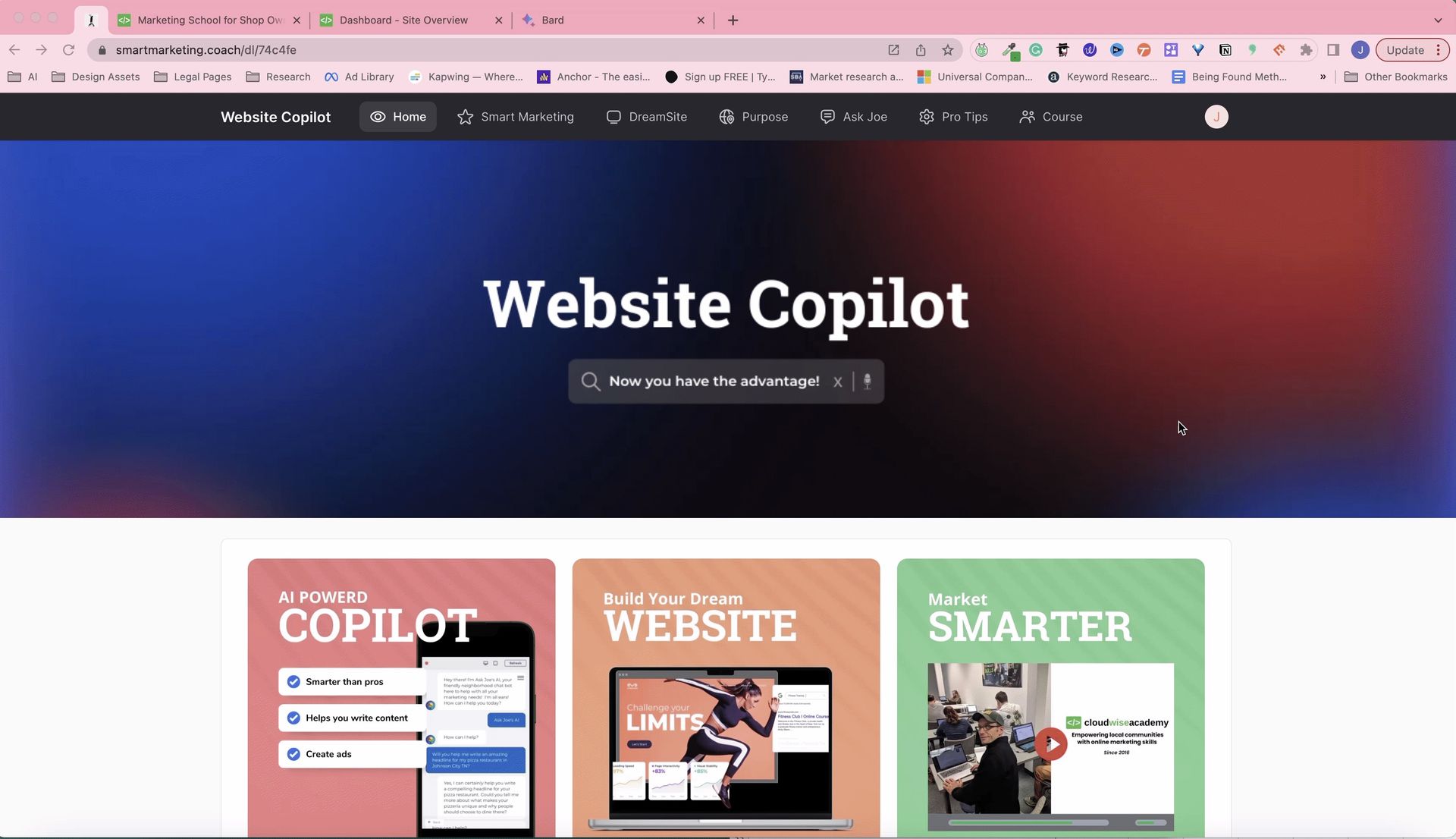This article is all about marketing tools. To learn even more about the topic, check out our page on web marketing.
The other day I was at my doctor’s office talking to a nurse. She asked me what I did and I told her that I created content for a web marketing and SEO optimization firm in town. To this she nodded sagely and said, “Yeah, I’ve been doing more of that for the office lately. I’ve just been on Twitter and Facebook. And my boss wanted me to get the site ranking better too.” I was flabbergasted. I told her that we had an entire team of people dedicated to the seemingly simple task of improving website rankings using specialized marketing strategy tools. And none of us were also expected to take care of patients.
“I have been doing a lot of overtime,” she admitted.
My heart goes out to that brave nurse trying to accomplish a truly gargantuan task in her spare minutes throughout the day. Content marketing and SEO optimization are hard. I’ve been an intern at Cloud Wise Academy for three months, trying to go from freelance writer to seasoned marketer, and as I’ve struggled to wrap my head around the nuances of Google and the Internet. I want to share one of the most important things I’ve learned about content marketing.
Half the battle is understanding the tools
This is true on the Internet generally. As a matter of fact, it’s true in most professions. But it’s especially true in content marketing. Writers especially are often called upon to produce content on topics they don’t necessarily know inside and out. Knowing where to research and what to look for makes that a lot easier. Here are some of my favorite content tools:
Google Trends

A content writer without Google Trends is like a knight without a horse. This is almost always where I start when I’m trying to figure out what to write for a client. This tool is free, and easy to use. Just type some words related to whatever it is you want to write about and you’ll be greeted with simple charts showing the way the popularity of that search term has changed in the last few years.
Google Trends is not a good tool to use to find a specific keyword, but it can tell you whether a broad topic is worth writing about. If a term is becoming more popular, that’s a good indication it’s time to jump on the train. Google Trends also offers lists of related terms that are blowing up at any given point in time. These are sometimes very helpful and sometimes not.
I see what I can see on Google Trends. Then, once I’ve either found a good topic (or struck out), I head over to . . .
BuzzSumo

At this point, BuzzSumo is my best friend. What it does is simple enough – you type the search term you’re interested in and it displays a list of all the pages on the Internet that contain that term and have been shared online. But it’s hard to overstress how useful this can be. BuzzSumo enables you to see very quickly and easily what kind of articles people like on a topic.
The internet is basically a vast system designed to give us what we want. If you’re thinking about writing an article on the topic of your favorite cookie recipes, the good citizens of the internet have already decided what they want an article about favorite cookie recipes to look like. BuzzSumo is your portal to that knowledge.
BuzzSumo also allows you to see where people are sharing these different articles – LinkedIn, Facebook, Pinterest, etc. This gives you better ideas on where to concentrate when socializing your articles and allows you to know what kind of audience you’re writing for.
One last thing BuzzSumo is useful for – you can type in the domain name of any site and see the most shared pages from that site. I like to first see what the top pages are on any website I’m trying to optimize then plug the domain of a competitor for our most important keywords. If the competitor is doing better, in terms of shares, it’s usually pretty easy to see why. They may have longer articles, more details, more personable writing in general, more images, and so on. Or you may see that their articles are not much better written, yet are shared a lot more. And that tells you something, too.
Moz

Once I know pretty much what kind of article I’m going to write, I head over to Moz to start finding keywords.
As an aside, many SEO writers find really juicy keywords, then craft articles based on those – whatever they are. I think that’s misguided. It’s a lot better to use other tools to find out what people are truly interested in, and then find the keywords that represent that interest, because otherwise you wind up writing articles on insubstantial or irrelevant topics just because you perceived that a keyword was high volume and low competition. Some keywords are avoided by your competitors for a reason.
The most important metrics when it comes to your Search Engine Results Page rankings are still time on site, bounce rate, and exit rate. To get good results in those areas, you need to write for humans as well as for Google. So think topics first, key words second. End of aside. Let’s talk about Moz.
The nice thing about Moz is that not only does it tell you which keywords are ripe for conquering, but it also provides detail about exactly how ripe they are. It provides metrics for search volume, difficulty, opportunity, and potential, which lets you know how hard it will be to rank first, how much more traffic you’ll get if you do, and how worthwhile a keyword is overall.
That said, Moz isn’t Google. Even thoughits scope is detailed, it is limited. I start finding keywords here, but the bulk of the rest of the work I do on . . .
The Keyword planner on Google AdWords

This tool is excellent because it allows you to see the world they way Google does. You type in a search term and Google tells you how many people are searching for it, how much competition there is for a term, and all of the other terms that Google thinks of when people type that search, in order of relevance. Unlike Moz, which uses its own algorithms, this allows you to get accurate knowledge straight from the horse’s mouth, so to speak. When I really want to define exactly what specific words to target, I use Google Adwords.

The final step in our journey is Google. That’s right, the Google. As a way of checking your work, type the search term you want to rank for into Google and see how many results show up. If there are more than 10 million, you’re probably going to have a tough time with that key phrase, regardless of what Moz and the Keyword Planner told you.
Marketing strategy tools: a word of caution
At the end of the day, knowing the tools is half the battle, but only half. All of these tools are just robots, sophisticated though they are. You can’t trust any of them to do the thinking for you, and you can’t give any one of them too much weight. If one tool leads you to a conclusion, you have to use your other tools to check. If they disagree, that doesn’t mean you have to go back to the drawing board, it just means you’ll want to find other ways to test your thinking.
As I said in the beginning, content marketing is hard. SEO is hard. These are the tools, not the solutions. To use them successfully, you’ll still need intelligence, perseverance, and a little bit of luck. The same way it works in any other job.






